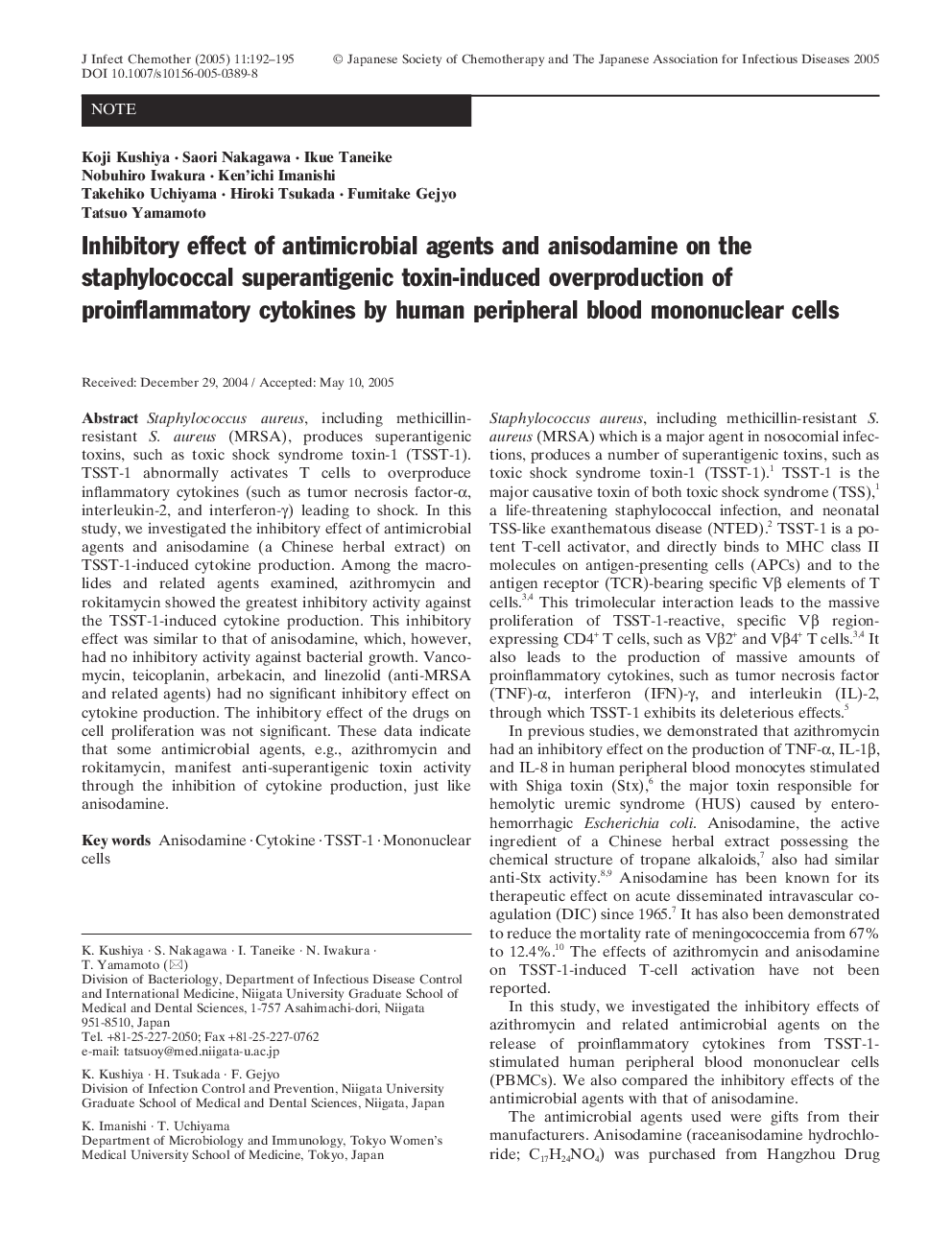| Article ID | Journal | Published Year | Pages | File Type |
|---|---|---|---|---|
| 9271394 | Journal of Infection and Chemotherapy | 2005 | 4 Pages |
Abstract
Staphylococcus aureus, including methicillin-resistant S. aureus (MRSA), produces superantigenictoxins, such as toxic shock syndrome toxin-1 (TSST-1). TSST-1 abnormally activates T cells to overproduce inflammatory cytokines (such as tumor necrosis factor-α, interleukin-2, and interferon-γ) leading to shock. In this study, we investigated the inhibitory effect of antimicrobial agents and anisodamine (a Chinese herbal extract) on TSST-1-induced cytokine production. Among the macrolides and related agents examined, azithromycin and rokitamycin showed the greatest inhibitory activity against the TSST-1-induced cytokine production. This inhibitory effect was similar to that of anisodamine, which, however, had no inhibitory activity against bacterial growth. Vancomycin, teicoplanin, arbekacin, and linezolid (anti-MRSA and related agents) had no significant inhibitory effect on cytokine production. The inhibitory effect of the drugs on cell proliferation was not significant. These data indicate that some antimicrobial agents, e.g., azithromycin and rokitamycin, manifest anti-superantigenic toxin activity through the inhibition of cytokine production, just like anisodamine.
Related Topics
Life Sciences
Immunology and Microbiology
Applied Microbiology and Biotechnology
Authors
Koji Kushiya, Saori Nakagawa, Ikue Taneike, Nobuhiro Iwakura, Tatsuo Yamamoto, Koji Kushiya, Hiroki Tsukada, Fumitake Gejyo, Ken'ichi Imanishi, Takehiko Uchiyama,
